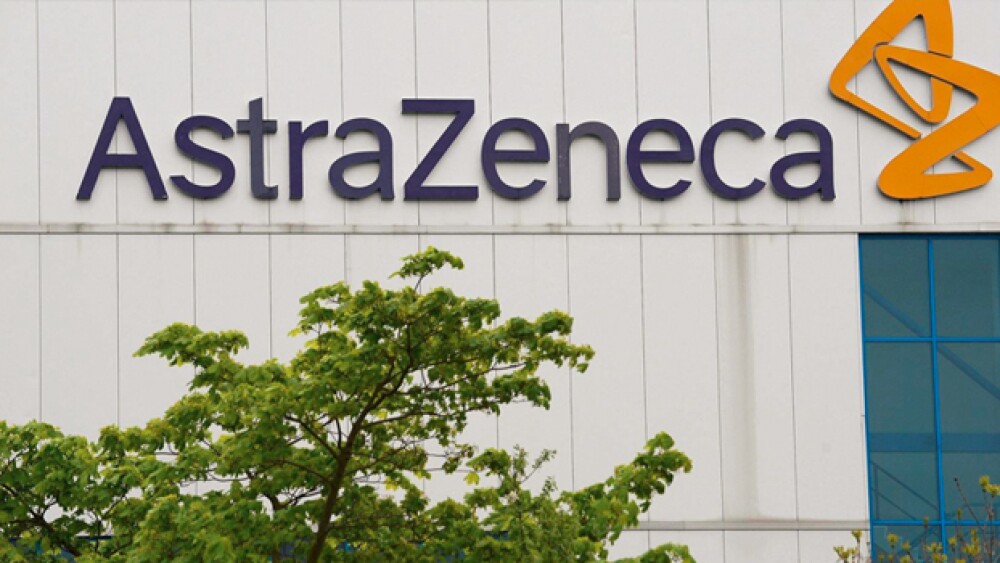Vivek Ramaswamy’s parent company, Roivant Sciences, inked a development deal with Astra.
Vivek Ramaswamy’s parent company, Roivant Sciences, inked a development deal with Swiss-based AstraZeneca.
The deal seems consistent with Ramaswamy’s business model—acquire cast-off compounds from big pharmaceutical companies at bargain-bin prices and convince investors to invest in developing them. An example is Axovant Sciences, one of Ramaswamy’s companies, which acquired initepirdine for mild-to-moderate Alzheimer’s disease for $5 million from GlaxoSmithKline, which had abandoned its efforts after multiple failures.
Unfortunately, on Sept. 26, 2017, intepirdine failed spectacularly in a Phase III MINDSET clinical trial, which would seem to cast a fairly large shadow over Ramaswamy’s business model. Axovant was trying to show the drug would work in a narrower patient population. However, although it showed promise in a Phase IIb trial, in the larger, more comprehensive Phase III trial, there was “essentially no difference between the intepirdine and placebo arms in change from baseline in activities of daily living,” according to the company.
In the deal with AstraZeneca, AstraZeneca is paying Roivant to work on a “deprioritized investigational drug in an undisclosed indication.” It is apparently a new therapeutic area that is outside AstraZeneca’s main areas of interest.
“We are delighted to welcome AstraZeneca to our expanding circle of pharmaceutical partners,” Ramaswamy, Roivant’s founder and chief executive officer, said in a statement. “I admire AstraZeneca’s commitment to ensuring that innovative medicines reach patients, and I hope this is the first of many future collaborations.”
It currently isn’t clear if Ramaswamy’s business model works, but he is good at getting investors. On Sept. 21, he launched another company under Roivant called Datavant, which will use artificial intelligence (AI) to improve clinical trials.
Datavant will be led by Travis May, co-founder and chief executive officer of LiveRamp. The company, incubated by Roivant, has already pulled together data from 85 different datasets made up of over 20 million patients visits. The company expects to analyze and collate the data using AI with the intention of informing the design and operations of clinical trials, arguing that this will improve the odds of success and shorten the time to market. All while cutting the costs of clinical trials.
Datavant launched with funding led by Roivant and investment from May. Roivant had recently closed a $1.1 billion equity investment led by the SoftBank Vision Fund, with Founders Fund participating.
“We are impressed by Roivant’s bold vision for transforming healthcare, and see Datavant as an integral part of that vision,” said Brian Singerman, a Founders Fund partner, in a statement. “Few sectors need innovation more than healthcare and Datavant is uniquely positioned to have a significant impact on the way medicines are developed across the industry.”
Roivant’s various small biotech companies tend to focus on a single disease area. For example, Axovant focuses on neurology, Myovant on women’s health and endocrine diseases, Dermavant on dermatology, Enzyvant on rare diseases, and Urovant on urology. At this time there’s no indication if AstraZeneca’s compound will go to one of those companies or if Roivant will open another biotech to focus on it.
“This deal is another example of how AstraZeneca collaborates with industry in an open manner to expedite the delivery of novel medicines to patients,” said Kumar Srinivasan, vice president of Scientific Partnering and Alliances with AstraZeneca’s Innovative Medicines and Early Development (IMED) Biotech unit, in a statement.





